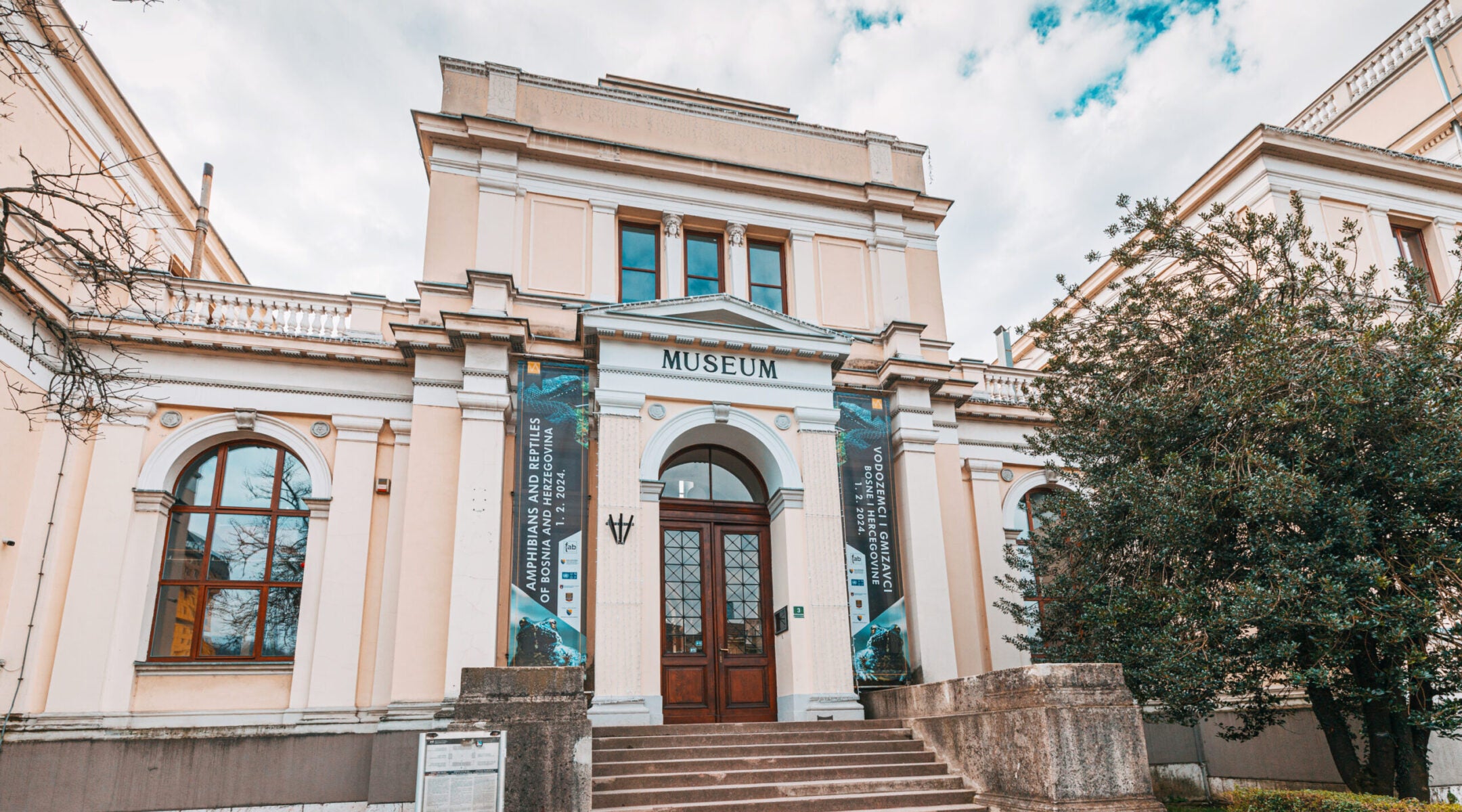Bosnian national museum says proceeds from display of Sarajevo Haggadah will go to ‘helping Palestine’
The Passover haggadah dates to the 14th century

The National Museum of Bosnia and Herzegovina is a landmark in Sarajevo, as seen in May 2024. Photo by Getty Images
(JTA) — When the Sarajevo Haggadah first went on permanent display at Bosnia’s national history museum in 2002, it was seen as a hopeful symbol for the future after a decade of ethnic strife.
Now, the museum has turned it into a different kind of symbol: for how criticism of Israel’s military campaign in Gaza is having collateral effects on Jews around the world.
The National Museum of Bosnia and Herzegovina announced on Friday that it would donate proceeds associated with the Passover haggadah, which dates to the 14th century, “for the purpose of helping Palestine.” The museum specified that it was allocating funds both from the sale of a book about the haggadah as well as ticket sales to the gallery where it is displayed.
“In this way, the National Museum of Bosnia and Herzegovina provides support to the people of Palestine who are suffering from systematic, calculated and cold-blooded terror, directly by the state of Israel, and indirectly by all those who support and/or justify its shameless actions,” the museum said in a statement published on its website.
The museum’s statement went on to charge Israel with committing a “genocide” in Gaza.
“In a time when we cannot justify ourselves with a lack of information, any aversion, any feigned neutrality in the face of everyday examples of killing, starvation and forced displacement of hundreds of thousands of civilians, primarily women and children, is an expression of acceptance and complicity in the genocide that we are all witnessing in real time,” it said.
The Bosnian government has taken a staunchly anti-Israel stance that has spilled over into trouble for Jews in the country in the past. In June, a federal minister successfully urged a Sarajevo hotel to cancel a convening of European rabbis on the grounds that hosting them would signal support for Israel.
The haggadah was written six centuries before Israel was founded and has never left the European continent. It was handwritten in Spain and brought to Sarajevo after the expulsion of Jews from the Iberian Peninsula in the late 15th century.
The museum’s announcement immediately elicited a sharp backlash from Jewish groups and leaders, including some that have played a role in the text’s preservation.
“The Sarajevo Haggadah, a symbol of Jewish resilience, survived the Inquisition, exile, and the Holocaust,” the American Jewish Committee said in a statement. “Now in Bosnia’s National Museum, its legacy is being tarnished by the museum’s decision to politicize the exhibit’s proceeds. By its recent actions, the museum disgraces itself and disrespects the generations of Jews who read from this Haggadah at their Seder tables.”
Rabbi Pinchas Goldschmidt, president of the Conference of European Rabbis, lamented on X that the haggadah had been “reduced to a political prop” by the Bosnian government. “Can we get a philanthropist to buy it and preserve its dignity?” he asked.
In its only post on social media since announcing the donation plan, the museum lashed out at a Bosnian politician who supports Israel. On X, it noted criticism of its announcement by Milorad Dodik, a separatist politician who attended a controversial Israeli government convening of far-right leaders earlier this year while evading arrest at home.
“The greatest form of hostility toward a people is expressed by selling a replica of their treasured heritage in order to take a stance against their state,” Dodik had written on X.
A Bosnian court last week upheld a one-year sentence for Dodik for ignoring legal rulings, and on Wednesday he was removed from his role as president of Republika Srpska, the Bosnian Serb entity within the Bosnian government.
The museum responded by noting that Dodik had used its official name, an apparent dig at his own nationalist ambitions, and cheekily invited him to visit to see how the museum was caring for the Sarajevo Haggadah. If he bought the accompanying book, it conceded, it would donate the proceeds not to the Palestinians but to printing a new version.
Bosnia is half Muslim, with Christians making up nearly all of the other half. It is home to an estimated 1,000 Jews who, like other minority ethnic groups, are legally barred from holding some political offices.















